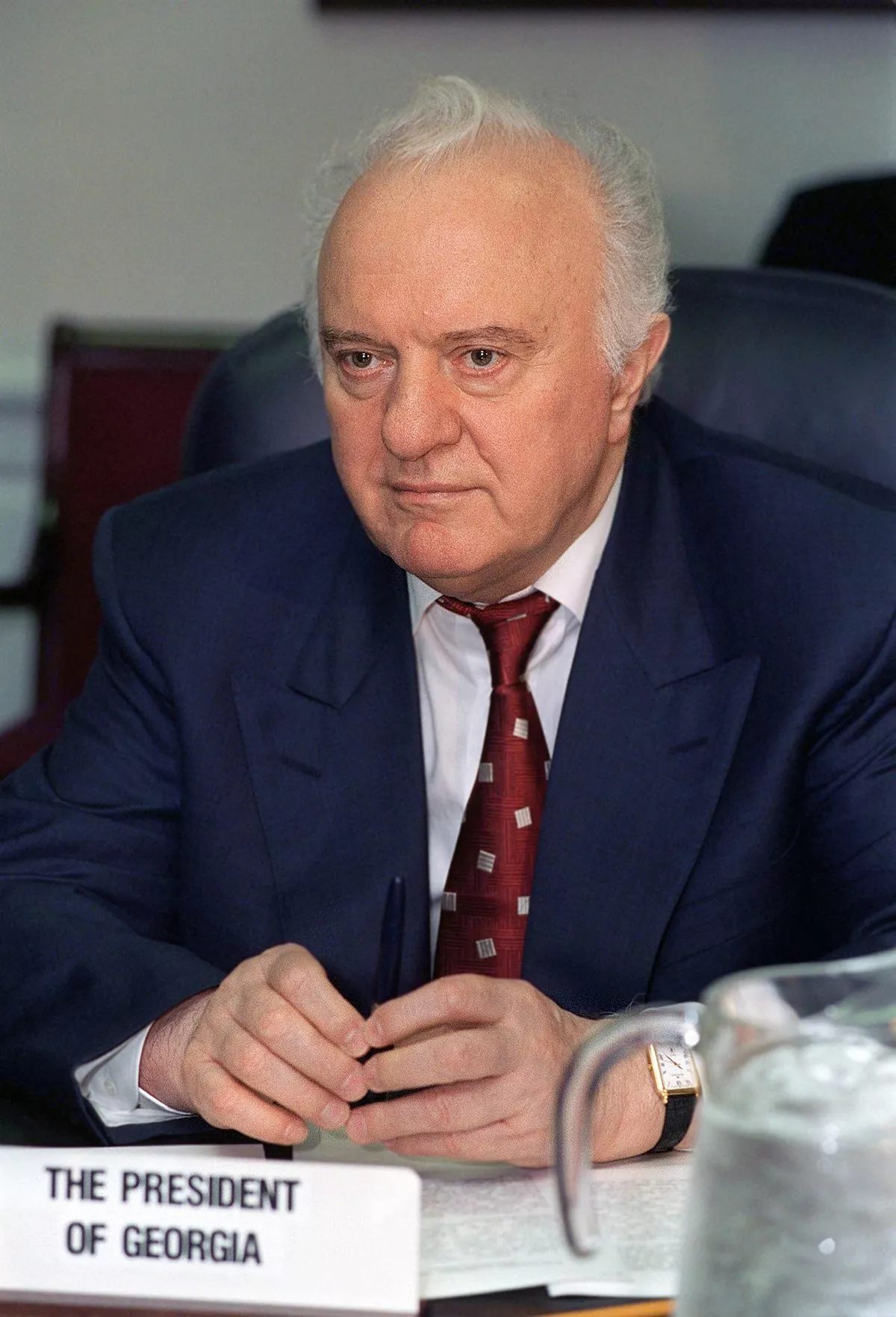 1.
1. Eduard Ambrosis dze Shevardnadze was a Soviet and Georgian politician and diplomat who governed Georgia for several non-consecutive periods from 1972 until his resignation in 2003 and served as the final Soviet minister of foreign affairs from 1985 to 1991.